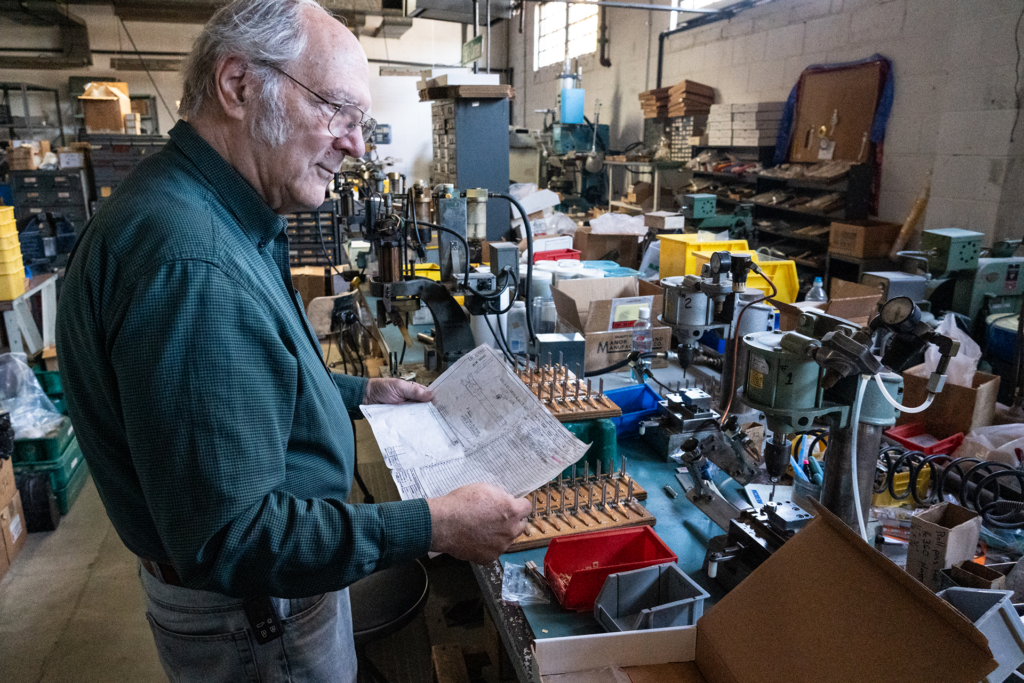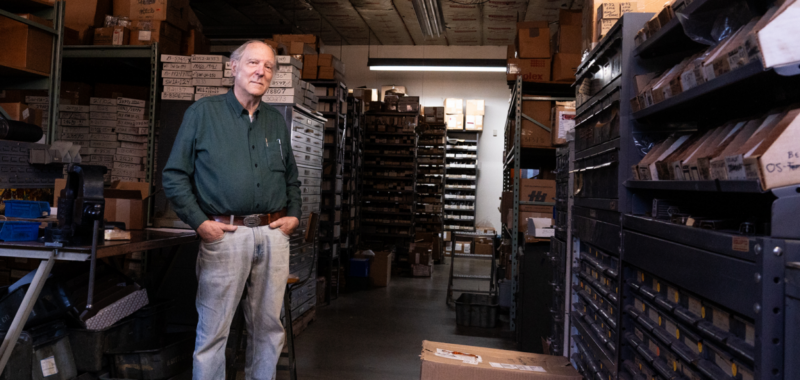
Steve Young poring through the shop’s resources.
Credit:
Tim Stevens
Regardless of which parts you order, you’ll, of course, need to pay for them, and that leads to the final unusual aspect of The Pinball Resource’s business model.
“I don’t do credit cards. We don’t do PayPal,” Young said. Venmo, Zelle, and other digital forms of payment also rank on the no-fly list. Young takes checks, money orders, wire transfers, cash, and that’s about it. These forms of payment can be slow, but orders don’t wait: The Pinball Resource ships most orders before payment is received.
Young likens it to a sit-down restaurant, something that confuses a lot of new customers. “When you place your order, do you have to pay? Or, do you eat the meal first, and then they give you your check, and then you pay?” Young said. “People really appreciate the trust I place in them.”
That attitude has earned The Pinball Resource a perfect five-star rating in online reviews from Google to Yelp, plus legions of loyal customers worldwide, each with a shared passion for keeping machines once considered disposable alive for the next generation to enjoy.
And that’s what Young is dedicated to doing himself, though lately on a somewhat reduced scale. He’s pared his personal collection of games down from over 200 to about 70. “I’m really focused on wood rails, so that kind of ends at 1960. And the more I work on them, the more my attention really narrows in on the span from maybe 1951 to ’54 as being the creme de la creme in terms of play and artwork.”
There’s some interesting irony that a man who came into this hobby through a study of metallurgy prefers games known for their wooden construction, but in the intervening 50 years, Young has helped maintain countless machines of all generations. Given that, I asked him what advice he’d give anyone who’s just bought their first machine, that one special game that somehow captured their imagination. I expected a suggestion about online user groups or specific tools worth investing in.
His response was a little different: “Don’t turn your back on them,” he said. “They multiply when you’re not looking.”

